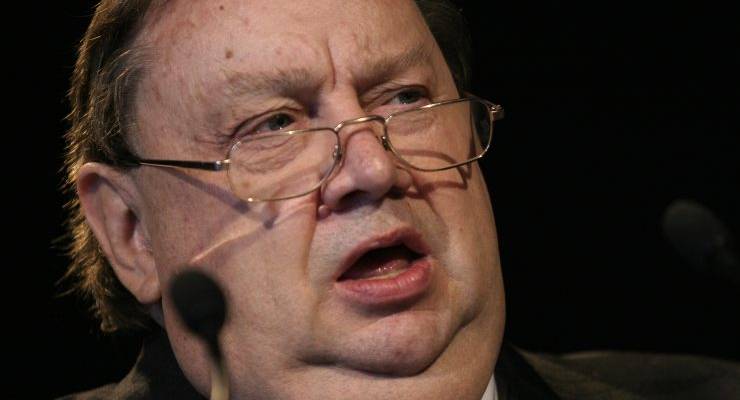
At 77, there surely isn’t a whole lot more Harold Mitchell is looking to achieve in corporate life.
The rich-lister has sold out of his advertising businesses and is now just sitting on one last public company board: Crown Resorts.
Given the controversy that has surrounded Mitchell ever since ASIC launched proceedings against him for allegedly breaching his director’s duties at Tennis Australia (something he is vigorously contesting), it was expected that, after eight years of service, he would probably retire at the end of his current three-year term on the Crown board.
Well, the notice of meeting for the October 24 Crown Resorts was lodged with the ASX last week and Mitchell has decided to seek another three-year term. What it is about these directors hanging around on boards?
The ASX itself held its AGM on Monday where chairman Rick Holliday-Smith, 69, presided for the seventh time since replacing David Gonski as chairman in 2012. Holliday-Smith has been an ASX director since the 2006 merger with SFE Corp, but before that he started as a chair of SFE in 1998 — a 21-year association with the ASX Group assets.
Holliday-Smith dug in on the question of director Ken Henry’s re-election yesterday, strongly arguing that, at ASX, his NAB record doesn’t matter. ASX shareholders still delivered a 16.77% protest vote on the proxies — the second largest protest against an ASX director in 20 years. After Henry served on the ASX board for six years, it would have been easier for him to simply retire at the end of his term.
However, Holliday-Smith was in no position to mount a “six years is long enough” argument in favour of Ken Henry’s retirement, especially since Holliday-Smith is also the chair of Cochlear, a board he has sat on for 15 years and is showing no sign of departing.
Some public companies have policies that discourage excessive service. For instance, mining giant Rio Tinto states that “non-executive directors are generally expected to serve on the board for at least six years and would not serve more than nine years”.
The situation tends to be different with founders. Harvey Norman executive chairman Gerry Harvey turned 80 on September 18 and is showing no signs of slowing down. Shortly after Westfield founder Frank Lowy turned 80, he shifted from executive chairman to non-executive chairman.
Harvey Norman’s board is full of other long-serving directors who breach the Australian Shareholders’ Association limit of 12 years of service before a director is no longer regarded as independent.
Then you have Rupert Murdoch, 88, who is the world’s longest-serving boss of a public company. Murdoch commenced as CEO of News Corp in early 1953 and has remained in charge for the past 66 years — the last 29 years as executive chairman.
Having a founder-chair should strengthen the need for more independent directors. However, strong founders often surround themselves with very long-serving directors. For instance, former BHP chair Jac Nasser is currently classified as the “lead independent director” of Rupert Murdoch’s other listed company, Fox Corporation — a board he has sat on since 2013. Before that, he spent a decade sitting with the Murdochs on the British Sky Broadcasting board. After 17 years of sitting in boardrooms with members of the Murdoch family, and being backed for re-election each time by their voting support, is he truly an independent director?
The same applied to someone like David Gonski, who spent more than 25 years on the boards of various Westfield entities.
Some would argue that long-serving directors deliver better results for shareholders. For evidence of that, it’s hard to go past Ramsay Health Care, which has delivered fabulous returns courtesy of the work of a core group of very long-serving directors and executives. The same applies with the Wilson family at plumbing supplies group Reece.
Director tenure and independence will remain an issue over the course of the coming AGM season and it is not just old blokes who will be in focus. Expect a protest vote against Tabcorp chair Paula Dwyer at the October 24 AGM, given that she has been chair for eight years and a director for 15 years.
If you can’t point to the scoreboard or win the backing of a founding family, it’s much harder to justify going beyond 15 years on a public company board. As for Harold Mitchell, he will be re-elected with the backing of James Packer, who still controls 37% of the votes at Crown Resorts.








This touches on one of the key reasons what Australian big business is basically dumbed by risk-aversion. The directorship club is a closed shop for white conservative self-important right-wingers.
The problem is not gender diversity, it is the lack of diversity in talent and intelligence. The Hayne RC was a crystal clear window into the smug world of corporate directors. How stupid would you have to be to adopt greed, mendacity and anti-customer strategies as business-as-usual and think you would get away with that forever.
Personally, I am a fan of Rhineish Capitalism, the German system that mandates that public company boards include representation for labour and the community in which the corporation operates together with the charming philosophy of Mittelstand. Given Germany’s long-lived industrial success, one would think other jurisdictions would examine why. But we never hear about another way to regulate corporations here because all our directors suffer delusions that they are good at it and we have politicians who are always looking for sinecures when turfed out of office.